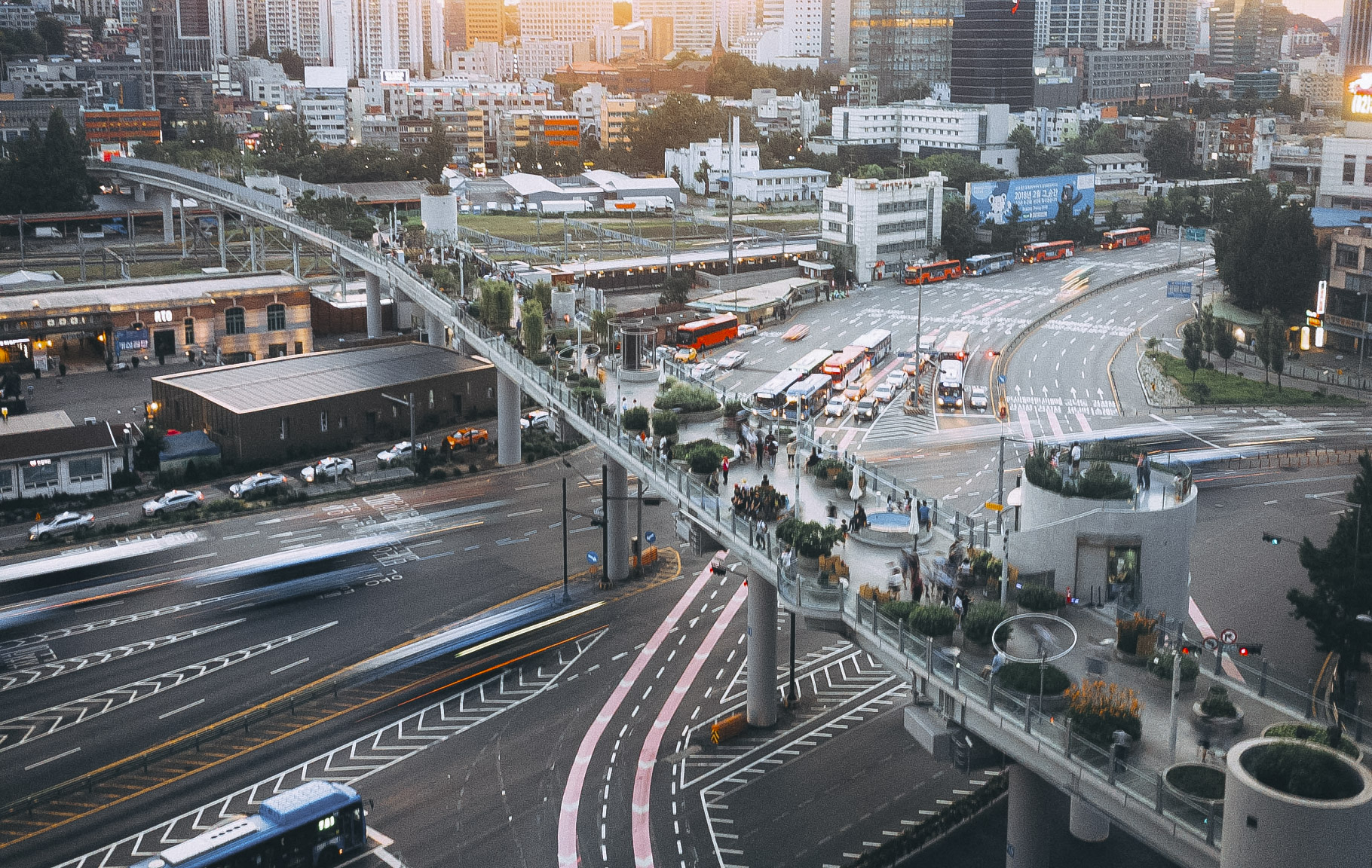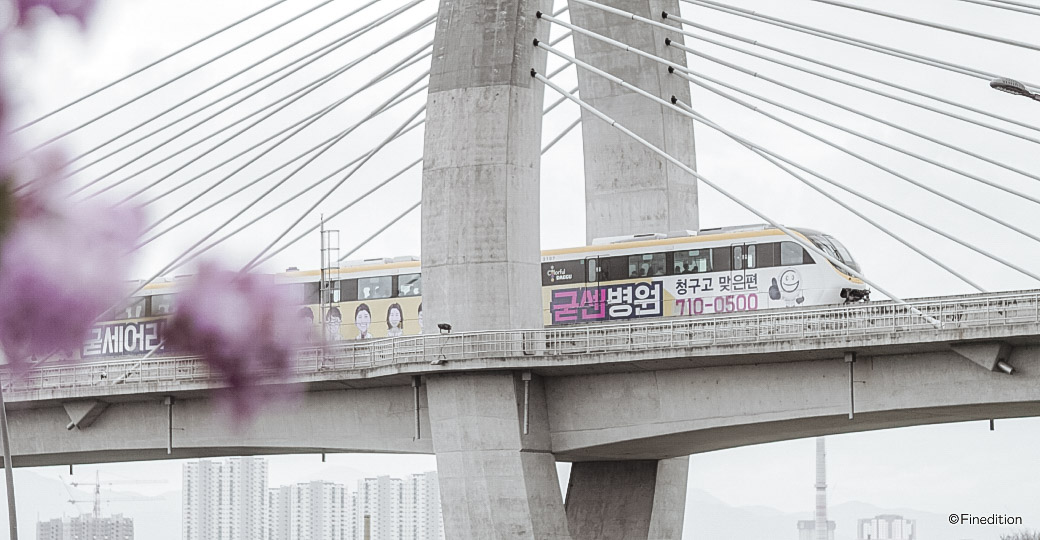Delete Comment?
Are you sure you want to delete your comment?You can’t undo this.

Delete Comment?
Are you sure you want to delete your comment?You can’t undo this.

Shopping
Useful tips in usingpublic transport in Korea
Understanding how public transport works in a foreign country helps you navigate the system more efficiently. This can save you time and reduce the stress of getting lost or missing connections.
19 Dec, 2024
Shopping
Useful tips in usingpublic transport in Korea
Understanding how public transport works in a foreign country helps you navigate the system more efficiently. This can save you time and reduce the stress of getting lost or missing connections.
19 Dec, 2024
Traveling in South Korea is an exciting and rewarding experience, offering a unique blend of traditional culture and modern amenities. While the country boasts an efficient and well-connected public transportation system, understanding the intricacies of getting around can significantly enhance your visit. In this guide, we will delve into six essential tips for using public transport in Korea. From the convenience of T-Money cards to respecting local etiquette, these insights will help you navigate the country with ease, save money, and ensure a harmonious experience with the local culture. Let's embark on a journey of discovery through South Korea's public transport system.

Traveling in South Korea is an exciting and rewarding experience, offering a unique blend of traditional culture and modern amenities. While the country boasts an efficient and well-connected public transportation system, understanding the intricacies of getting around can significantly enhance your visit.
T-Money Card: The Traveler's Lifeline
South Korea's T-Money card is the ultimate travel companion. This rechargeable transportation card works seamlessly on buses, subways, and even taxis in most Korean cities. You can purchase a T-Money card at convenience stores or subway stations, and it's easy to recharge as you go. Not only does this card offer convenience, but it can also save you money with discounts over cash fares.
Know the Timetables: Punctuality is Key
Public transport schedules can vary by city and time of day. Familiarize yourself with these schedules and plan your journeys accordingly. Apps like KakaoMap and Naver Maps, Seoul Metro provide real-time information, helping you find the quickest routes between destinations.
Queue Properly: Politeness in Motion
In South Korea, maintaining order and politeness is of utmost importance. When waiting for a bus or subway, form an orderly line and allow passengers to exit before boarding. Being courteous and offering your seat to those in need, such as the elderly, pregnant women, or passengers with disabilities, is a common practice.
Learn Basic Korean Phrases
While English signage is common in major cities, a few basic Korean phrases can enhance your travel experience. Phrases like "안녕하세요" (Hello) and "감사합니다" (Thank you) go a long way in showing respect and appreciation. Learning some basic Korean can also help in seeking directions or assistance.
Mind the Etiquette: Respect the Rules
Public transportation etiquette in South Korea includes not talking loudly on the phone, refraining from eating or drinking in buses and subways, and keeping your feet off the seats. These practices demonstrate respect for the comfort and sensibilities of fellow passengers.
Plan for Rush Hours: Timing is Everything
Rush hours in South Korea, especially in major cities like Seoul, can be intensely crowded. Peak hours typically occur in the morning and evening when people are commuting to and from work or school. If possible, plan your travel outside of these times to ensure a more comfortable and less crowded journey. Try to avoid 8-9am and 5pm-7pm.
Learn Basic Korean Phrases
While English signage is common in major cities, a few basic Korean phrases can enhance your travel experience. Phrases like "안녕하세요" (Hello) and "감사합니다" (Thank you) go a long way in showing respect and appreciation. Learning some basic Korean can also help in seeking directions or assistance.

Q&A for travelers using public transport
Here, we will address three key questions that foreign travelers might have when using public transport in South Korea. From the best modes of transport in major cities to cultural etiquette and communication tips, let's embark on a journey of knowledge to make your travel experience in South Korea memorable and hassle-free. What is the best way to get around South Korea's major cities, such as Seoul and Busan? The most efficient way to get around major South Korean cities is by using the extensive public transportation system, which includes subways and buses. For added convenience and cost savings, consider obtaining a T-Money card, a rechargeable transportation card accepted on most forms of public transport. It's readily available at convenience stores and subway stations and allows you to travel seamlessly. Are there any cultural etiquette tips I should be aware of when using public transport in South Korea? Yes, it's essential to be mindful of local etiquette when using public transport in South Korea. Some key points include: (1)Forming orderly queues and allowing passengers to exit before boarding. (2)Being courteous and offering your seat to those in need, like the elderly, pregnant women, or passengers with disabilities. (3)Avoiding loud phone conversations, eating, and drinking on buses and subways. (4)Keeping your feet off the seats to show respect for the comfort of fellow passengers. What should I do if I need help or directions while using public transportation in South Korea, especially if I don't speak Korean? If you find yourself in need of assistance or directions and don't speak Korean, there are a few strategies you can use: (1)Learn a few basic Korean phrases to help with communication. Simple greetings and questions, like "안녕하세요" (Hello) and '어디에요?" (Where is it?), can be useful. (2) Use translation app Papago, or maps like Google Maps, KakaoMap, or Naver Maps, which provide navigation and help you find information in English.

Fine Tip
No drinks or foods on the bus and subway. You won’t be able to ride on the bus, espescially.
South Korea's public transport system is a gateway to exploring the country's diverse landscapes, from bustling metropolises to tranquil villages. By arming yourself with these six essential tips, you'll not only navigate South Korea efficiently but also embrace the local culture with respect and consideration. Whether you're exploring Seoul's vibrant neighborhoods, taking in the stunning vistas of Jeju Island, or immersing yourself in traditional culture in Gyeongju, these tips will enhance your travel experience, making your journey through South Korea a memorable and enriching one.
You May also like
Taste
Samgyeopsal, Every Korean’s Favorite!
Shopping
Hanji - Korean traditional Paper& Where to find them
Taste
Classic never goes out of style: About Korean Snacks & Where
Shopping
Discover famous regions in Korea
Taste
What a Culinary adventure! 6 Most loved K-foods
Spots
Royal palaces in Seoul & Which one to visit
Taste
Banchan odyssey, Explore a world of flavors
Explore
A Journey Throughthe National Museums
Heritage
Which markets are famous to locals in Seoul?

Comments (0)